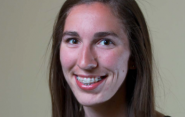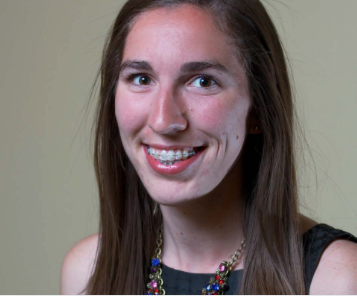With Whitaker Fellowship, Becky Byler Fights Neglected Tropical Diseases

Becky Byler, a recent recipient of a Whitaker International Fellowship - one of the most prestigious awards for biomedical engineers in the U.S. – will be departing to Colombia this month to develop nanotechnologies for treating a neglected parasitic disease known as leishmaniasis.
 As a 2017-2018 fellow, Byler will continue her dissertation work on developing nanotechnologies for improved treatment of leishmaniasis (a neglected parasitic disease) in Cali, Colombia for 12 months. Current treatments for leishmaniasis, a debilitating and fatal parasitic disease, have significant issues with toxicity and efficacy. Recently, the use of nanoparticles has emerged as a viable strategy for fighting the disease. Ultimately, Byler’s work aims to develop nanotechnology platforms against a variety of intracellular microbial diseases (including tuberculosis, and malaria) that are particularly problematic in low- and middle-income countries.
As a 2017-2018 fellow, Byler will continue her dissertation work on developing nanotechnologies for improved treatment of leishmaniasis (a neglected parasitic disease) in Cali, Colombia for 12 months. Current treatments for leishmaniasis, a debilitating and fatal parasitic disease, have significant issues with toxicity and efficacy. Recently, the use of nanoparticles has emerged as a viable strategy for fighting the disease. Ultimately, Byler’s work aims to develop nanotechnology platforms against a variety of intracellular microbial diseases (including tuberculosis, and malaria) that are particularly problematic in low- and middle-income countries.
Byler is a graduate research assistant whose advisors are Tarek Fahmy, associate professor of biomedical engineering and immunobiology, and Diane McMahon-Pratt, professor of epidemiology. Byler said she views her future role as a “humanitarian engineer.” That, she said, entails two major components: disrupting biotechnology development by revolutionizing the research paradigm for approaching global health challenges, and modernizing traditional engineering pedagogy to more effectively prepare the next generation of biomedical engineers.
Although neglected tropical diseases (NTD) represent 12% of the global disease burden, only 1% of all research & development expenditures go toward vaccines, diagnostics, or treatments for these diseases.
“As a skilled biomedical engineer, I knew I had to use my technical training to help close the R&D gap, and to convince others of the importance of also tackling NTDs,” she said.
The Whitaker fellowship, she said, aligns “wholly with what I hope to pursue daily as a future humanitarian engineer and professor: working on an international team to solve challenging—and largely ignored—health problems."

